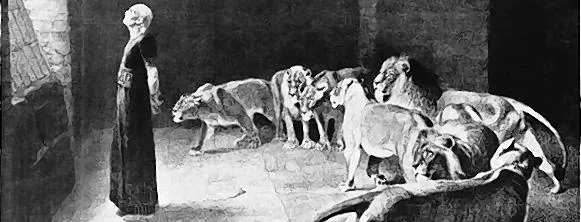Among the Old Testament books, Daniel often takes a beating. The critical reaction frequently reflects a skeptical attitude to miracles (did Daniel really spend a night in a den of lions?) or to predictive prophecy (was Daniel really able to predict the rise and fall of later empires?). As a consequence, many critics date these books late and suggest they are Jewish legends with prophecies of events that had already taken place included to make them sound authentic.
We may be tempted to sidestep these criticisms. But that evasion is short-sighted. If we reject something as spurious because it contains miracles or accurate predictive prophecy then eventually that attitude will undermine the gospel. What is left of the ministry of Jesus if we reject miracles? What is left of the gospel if we reject prophecy of future events?
It is ironic that all the accumulating archaeological and material evidence supports the reliability of Daniel, while nothing has been found to undermine it. S.R. Driver (1846-1914), professor of Hebrew at Oxford, wrote one of the most influential commentaries on Daniel and dated its final form to what is called the Maccabean period (c. 165 BC). This was long after the Babylonian exile (c. 609-536 BC), in which the book claims to be set.








Comedy, free speech and warnings from the past
Hannah Arendt was a Jewish philosopher who grew up in Nazi Germany. Eventually she had to flee to France and, …